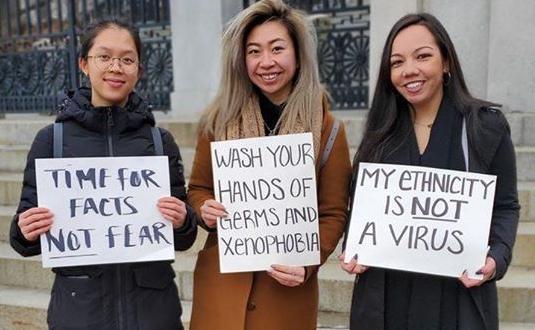Vidya Sethuraman
India Post News Service
The United States is more racially and ethnically diverse today than it ever has been, and it is projected to be even more diverse in the coming decades. Experiencing racism has been a common hallmark of the Asian American experience over the years, but the frequency and severity of the incidents taking place during the pandemic are hitting the highest levels in decades.
Many people of color say they have experienced hate-motivated crime and discrimination amid the COVID pandemic and Black Lives Matter protests. EMS conference speakers on Oct 9 discussed how hate is contagious, much like a virus, and what to do if you are a bystander or victim.
It’s hard to attribute causality, but what we can say is that many Asian Americans feel they have been subject to slurs or jokes because of their race or ethnicity since the outbreak,” said Neil Ruiz, associate director of Global Migration and Demography Research at the Pew Research Center.
Asian Americans are more likely than any other group to say they have been subject to slurs or jokes because of their race or ethnicity since the coronavirus outbreak: 31% say this has happened to them, compared with 21% of Black adults, 15% of Hispanic adults and 8% of white adults. About a quarter (26%) of Asian Americans and 20% of Black Americans say they feared someone might threaten or physically attack them, more than the shares of white and Hispanic Americans.
Three-in-ten or more U.S. adults say racist views about Asian and Black Americans are more common than before the pandemic. Manju Kulkarni, executive director of AP3CON. Ms. Kulkarni shared data from Stop AAPI Hate, which has recorded 2,583 incidents of hate crimes and discrimination against Asian Americans and Pacific Islanders. A new study out of California released by Stop AAPI Hate found that there is a rise in racism, especially against Asian American youth.
Kulkarni said the pandemic and stay-at-home orders are stressing everybody out. But Asian Americans also have to think about what could happen when they go out in public, especially women who, according to the Stop AAPI Hate data, are harassed at twice the rate of men, likely because they are seen as easier targets, Kulkarni said.
Stop AAPI Hate also urges schools to implement ethnic studies throughout the curriculum so students can learn the historical roots and impacts of racism, develop agency and empathy, and commit to racial solidarity and justice. According to their experts, student-led workshops involving anti-bullying practices can reduce bullying by 25% and lead to a 20% decrease in victimization.







